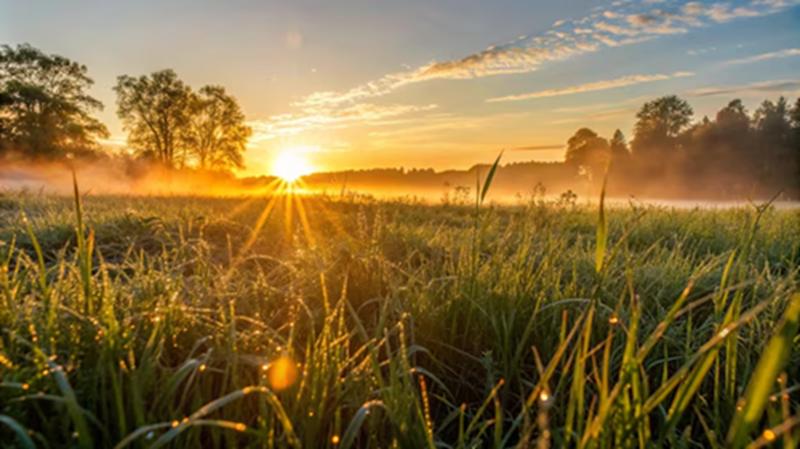Exodus 12:42 – Toward the Sunrise
Exodus 12:42 – Toward the Sunrise
It was a night of watching by the LORD, to bring them out of the land of Egypt; so this same night is a night of watching kept to the LORD by all the people of Israel throughout their generations.
Exodus 12:42

So majestic and awe-inspiring was the movement of the hosts of the LORD out of the land of Egypt, that Moses immediately adds that the same night was instituted as a night of watching, a solemn feast of dedication to the LORD. The Passover feast was instituted to recall God's great act of deliverance for His people. The feast itself was one kept at night in silence and haste, cf. 12:11; all were dressed in preparation for flight. And this, too, forms a part of the memorial feast that the LORD had established as a lasting ordinance among His people.
One can immediately notice from the description of the feast and its requirements that despite the great work of deliverance by the LORD, a relatively somber air prevails. The emphasis in the Passover feast falls on escape from judgment, and not on being transferred into God's kingdom of light. The setting tells the story: everything happens at night. Indeed, the LORD Himself descends into the night, and sets this night as a night of watching. He Himself stood watch, so that when the Destroyer of the first-born came to the houses marked with sprinkled blood, the first-born were passed over, and spared from death, cf. Hebrews 11:29.
Although there is much joy in the Passover celebrations in Israel's history – especially after it was reinstated after years of decline, cf. 2 Chronicles 30 – the old dispensation never witnessed a change from the fundamental category of escape from judgment that characterized the memorial. Escape from a common lot accents the feast. Israel's firstborn were spared by grace alone, on the basis of the LORD'S claim upon them. And Egypt's first-born are destroyed because of Pharaoh's failure to give to the LORD that which was rightfully His.
However, the accent shifts when the Passover comes to its fulfillment in the work of Jesus Christ. He appeared at the Passover in order to direct the thoughts and faith of His people to Himself as God's chosen Author of salvation for His people, cf. John 2:23. And yet the Lord Jesus meets with unbelief. The light had entered the darkness, but the darkness did not understand it. So Jesus says,
We must work the works of Him who sent me, while it is day; the night comes when no one can work.John 9:4
And come it did. Jesus was given over to death by His own countrymen. So Paul says – and that has become a recurring expression in our observance of the eucharistic feast – that the “Lord Jesus, in the night in which He was betrayed, took bread …” 1 Corinthians 11:23. The night of watching became the night of betrayal. The Lord Jesus also entered into the night of sin and the darkness of death. But He in all things, He proved faithful to the one who sent Him. By His perfect obedience He effects a greater deliverance, through which the light dawns, and salvation and life is freely given to all who believe.
So we find a shift of accent in the New Testament description of the feast. No longer does our feast of remembrance focus on the night. Rather, because of Christ's perfect obedience and perfect love for us in His night of betrayal, our night of watching is filled with the day. The rays of early morning sunshine have come bursting into our darkness. That is why Paul tells us to rise up and keep the feast, cf. 1 Corinthians 5:8, Ephesians 5:14ff, adding that “salvation is nearer to now than when we first believed; the night is far gone, the day is at hand,” Romans 13:14. So we are also called to be sons of the light and sons of the day.
We are not of the night or darkness. So then let us not sleep as others do, but let us keep awake and be sober.1 Thessalonians 5:6

All this gives deeper assurance and joy to the ancient memorial as we may keep it to this very day. To be sure, the element of vigilance always remains. We are to be watchful and sober, for our enemy prowls as a roaring lion, seeking someone to devour. But God has made progress! No longer do we commemorate only the escape from punishment and wrath; now we may also commemorate the fulfillment of the promise and our transfer from darkness into God's glorious light. Indeed, what could only be celebrated in stages and fragmentally in the old dispensation is now celebrated in the one, complete festival of deliverance and salvation in the new. The memorials of the Exodus, Red Sea and Jordan have all been combined into one great eucharistic feast, the festive celebration of the victory of Jesus Christ over death, and the arrival of the reign of God in our hearts.
So we may move toward the sunrise. In a sense, the church, too, must admit that the night comes when no one can work. But we have the Word with us, which shines as a light burning in a dark place, 2 Peter 1:19. We can go forward toward the sunrise with confidence and hope, dressed for battle, waging the triumphant fight of Christ's victory over sin in this world. He goes before us, and He dwells in our hearts, transforming our darkness into light. And as new rays steadily shine brighter, we can move forward toward the future of God's glorious sunrise with ever greater confidence, knowing that soon the day will dawn, and the morning star will rise in our hearts, 2 Peter 1:20. Then the night will be gone, and we will live in the eternal Day of His presence with perfect joy and thanksgiving.

Add new comment